 St John Neumann Regional Catholic School
St John Neumann Regional Catholic School
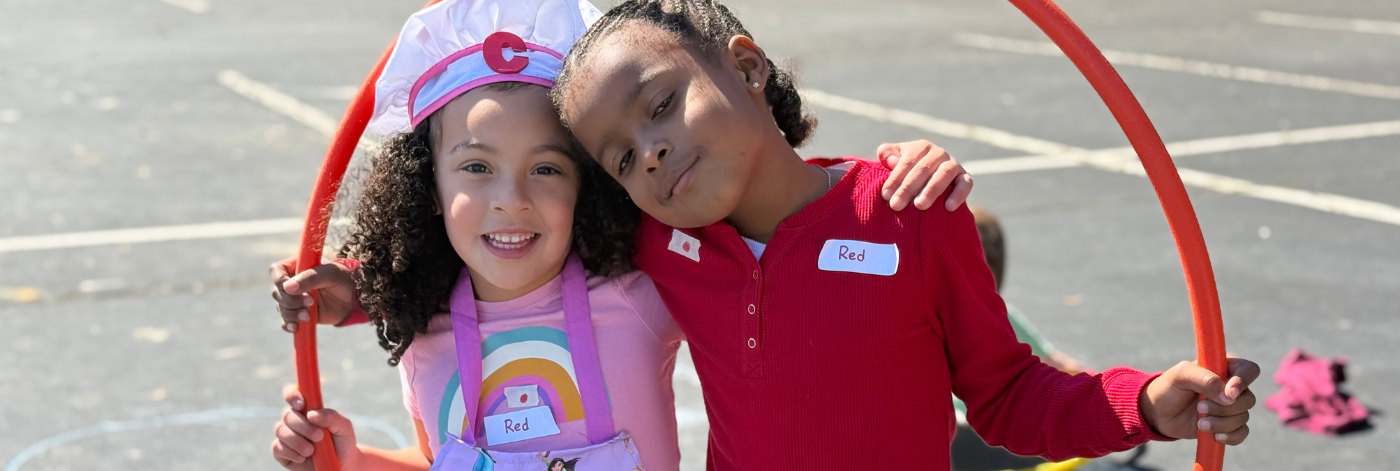
Academics
St. John Neumann Regional Catholic School strives to meet the educational needs of all of its students on the academic spectrum. Children who need additional academic support outside the classroom may be referred to the Academic Coaching Program to provide strategies for each child’s success which is designed to meet the learning style needs of students. Coaching is available to those students who meet specified criteria. Early intervention is one of the goals of the program. Students meet in small groups with a concentration on reading and math skills, academic subject reviews, study skills, and test preparation.
By challenging each student to do his or her best, the faculty ensures that students develop the skills necessary for success. This is evidenced by the exceptional performance of students from SJNRCS who go on to public, private, and parochial high schools with 100% acceptance to the school of their choice.
The curriculum at SJNRCS encompasses the following subject areas and each student is required to participate in every subject area taught in their grade level. The academic subjects include:
Religion
Language Arts
Reading and Literature
Mathematics
Science
Social studies
Art
Music
Computers and Technology
Spanish
Physical Education
Media Enrichment
Curriculum Breakdown
For the pre-kindergarten classes, lessons and activities developed align with the Georgia Early Learning and Development Standards (GELDS). Throughout the year, there will be strong emphases on Physical Development and Motor Skills (PDM), Social and Emotional Development (SED), Approaches to Play and Learning (APL), Communication, Language, and Literacy (CLL), and Cognitive Development and General Knowledge (CD). Students will spend time learning about how to go to school and how to become active learners. Students will also develop their fine motor and gross motor skills through the incorporation of core subjects such as religion, reading and writing, math, social studies, and science.
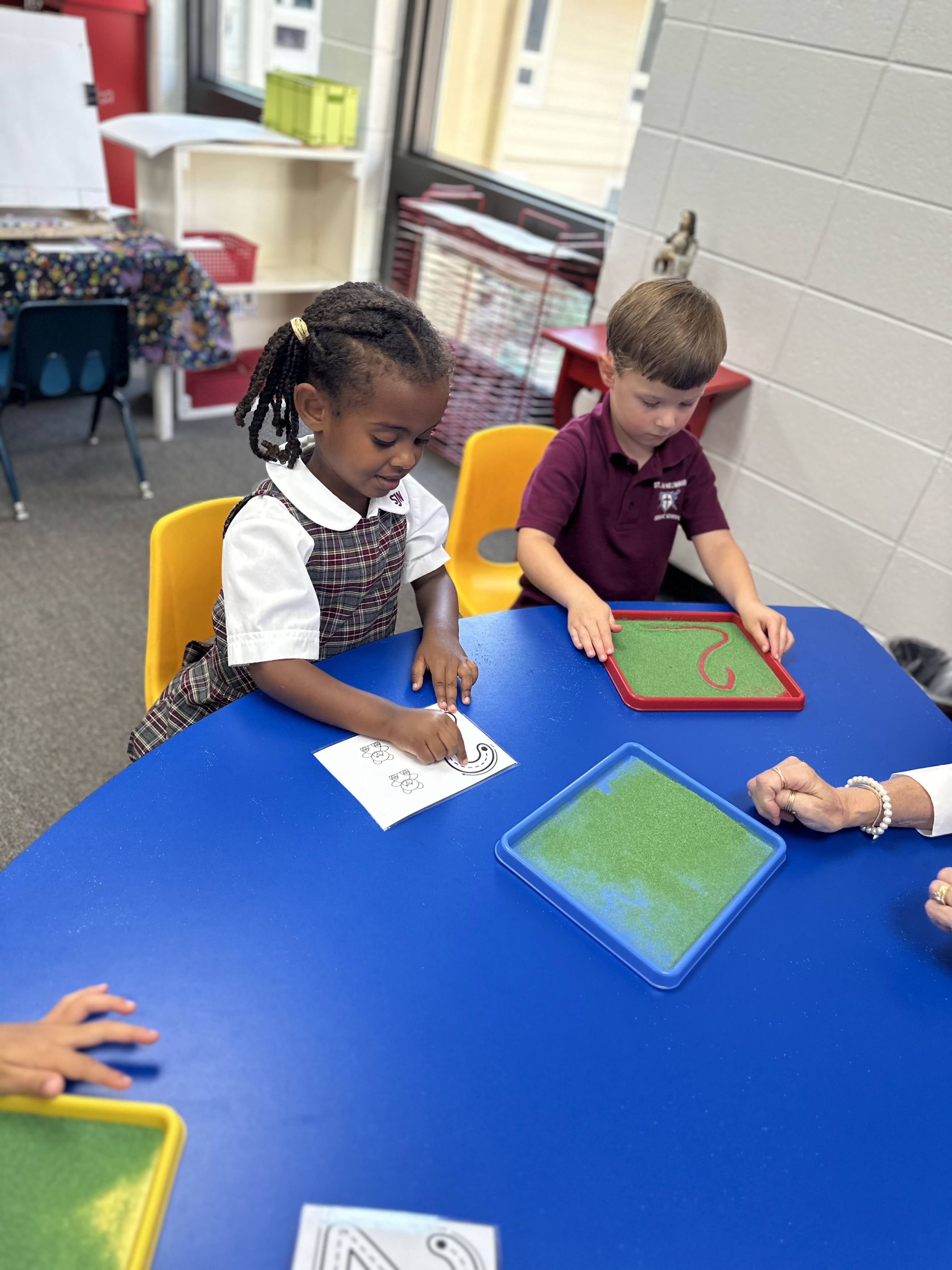
In religion, students will develop their relationship with God and begin the path of Catholic identity. Students will learn about their faith by attending weekly Mass. While in the presence of God, students will engage as active, reverent members of the Church. In addition to weekly school Masses, students in Pre-K will learn about their faith through the Catechesis of the Good Shepherd curriculum. The 4-6-year-old child is particularly capable of receiving and enjoying the most essential elements of our faith – the announcement of God’s love especially experienced through Jesus the Good Shepherd, who died and is risen. This faith formation is shared in the Atrium – a special room where all the materials are child-sized models that represent what can be found in Baptism or Eucharist. The shelves include maps of Israel, miniature environments representing the elements of the parables or the historical events from infancy or paschal narratives that have been shown to satisfy the spiritual needs of the child. The model altar and its articles convey the centrality of the Eucharist.
active, reverent members of the Church. In addition to weekly school Masses, students in Pre-K will learn about their faith through the Catechesis of the Good Shepherd curriculum. The 4-6-year-old child is particularly capable of receiving and enjoying the most essential elements of our faith – the announcement of God’s love especially experienced through Jesus the Good Shepherd, who died and is risen. This faith formation is shared in the Atrium – a special room where all the materials are child-sized models that represent what can be found in Baptism or Eucharist. The shelves include maps of Israel, miniature environments representing the elements of the parables or the historical events from infancy or paschal narratives that have been shown to satisfy the spiritual needs of the child. The model altar and its articles convey the centrality of the Eucharist.
The pre-kindergarten curriculum provides many opportunities for hands-on learning and activities. In reading and writing, students will be presented with various authors and titles that will help them develop complete ideas and thoughts while expanding comprehension. In math, students will have access to manipulatives such as blocks, counters, and unifix cubes to provide an opportunity for visual understanding. In social studies, students will learn about their community and how they can become active members in their classroom and school. Lastly, in science, students will experience the environment hands-on, learning about factors of nature such as weather.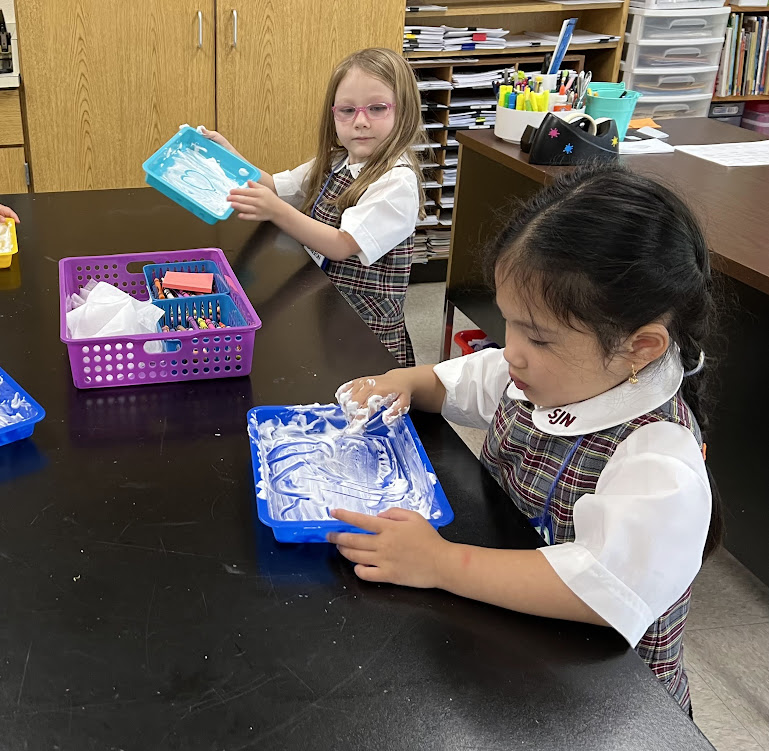
In religion, students take their first steps on the path to developing their Catholic identity. They learn about God through Bible stories, prayer, hymns, and attending weekly Mass.
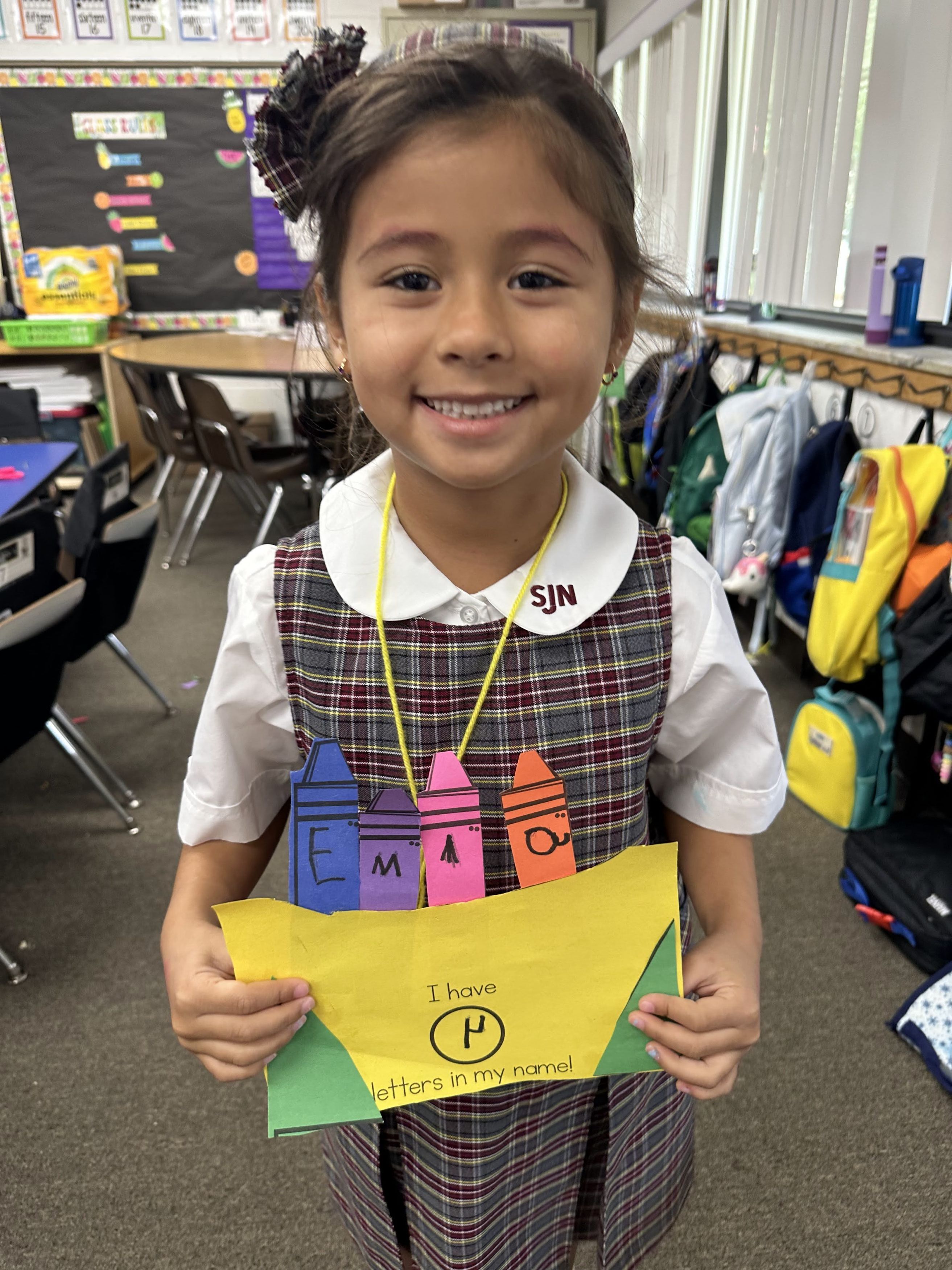
We base their learning on the most important rule, the Golden Rule, “Do unto others as you would have them do unto you” (Matt. 7:12).
Our reading and language arts programs are designed to nurture a lifelong love of reading and communicating. Reading is taught through visual, auditory, and kinesthetic modalities such as singing, phonetics, and the use of colorful characters in literature. This multimodal technique helps to simultaneously develop better reading and writing skills. Our reading program “Super Kids” uses a technology component that enhances their learning experience both in class and at home.
The kindergarten math curriculum focuses on problem-solving and the understanding of fundamental mathematical concepts. Those skills are introduced in a concrete setting using various manipulatives such as blocks, games, dice, and other objects to engage young learners. Most importantly, the concepts are related to student life experiences and how they apply to their own world.
Throughout our science and social studies curriculum, students enjoy various experiences to develop their curiosity about the world around them. Some of those fun activities include planting seeds, graphing daily weather forecasts, and making snowflakes along with many other STREAM experiments.
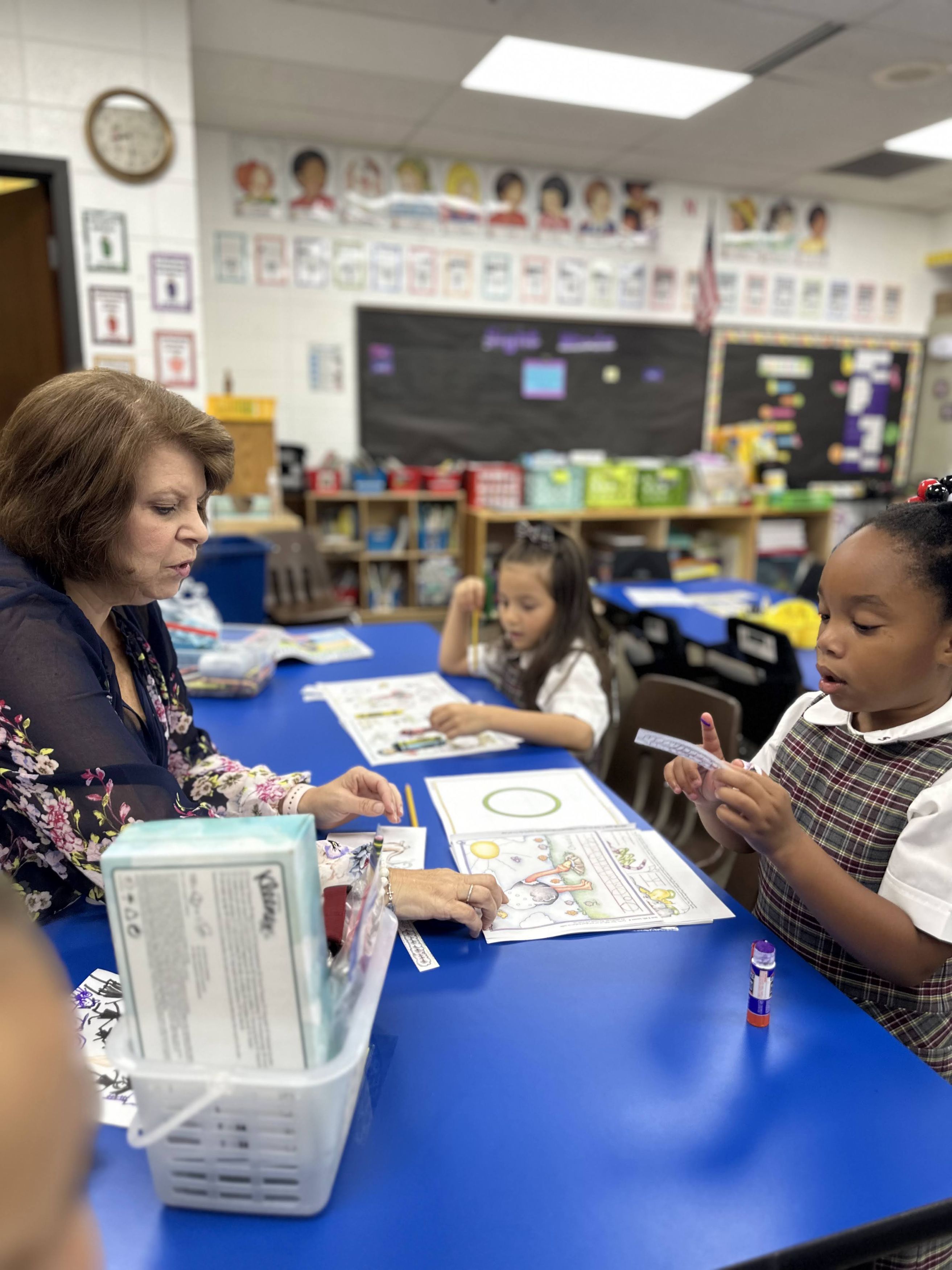
Homework
Kindergarteners learn early the importance of homework in their education. Each student is given a weekly binder with a review of the assigned classroom work. Students are responsible for maintaining a journal describing a weekly topic and reviewing math concepts through a program called Simple Solutions.
Centers
All children love to see their parents at school and share with them what they are learning. Kindergarten parents are invited to assist our teachers during centers, a time when students get fun and creative hands-on exposure to whatever concept is currently being taught.
To create an environment in which all students understand they are uniquely created by God. Students will discover who they are as individuals and part of a family, class, school, and community. And create a learning environment in which students are empowered to succeed by incorporating research-based learning strategies for instruction. These strategies include a variety of multi-sensory teaching methods that capitalize on the diverse learning styles of all students.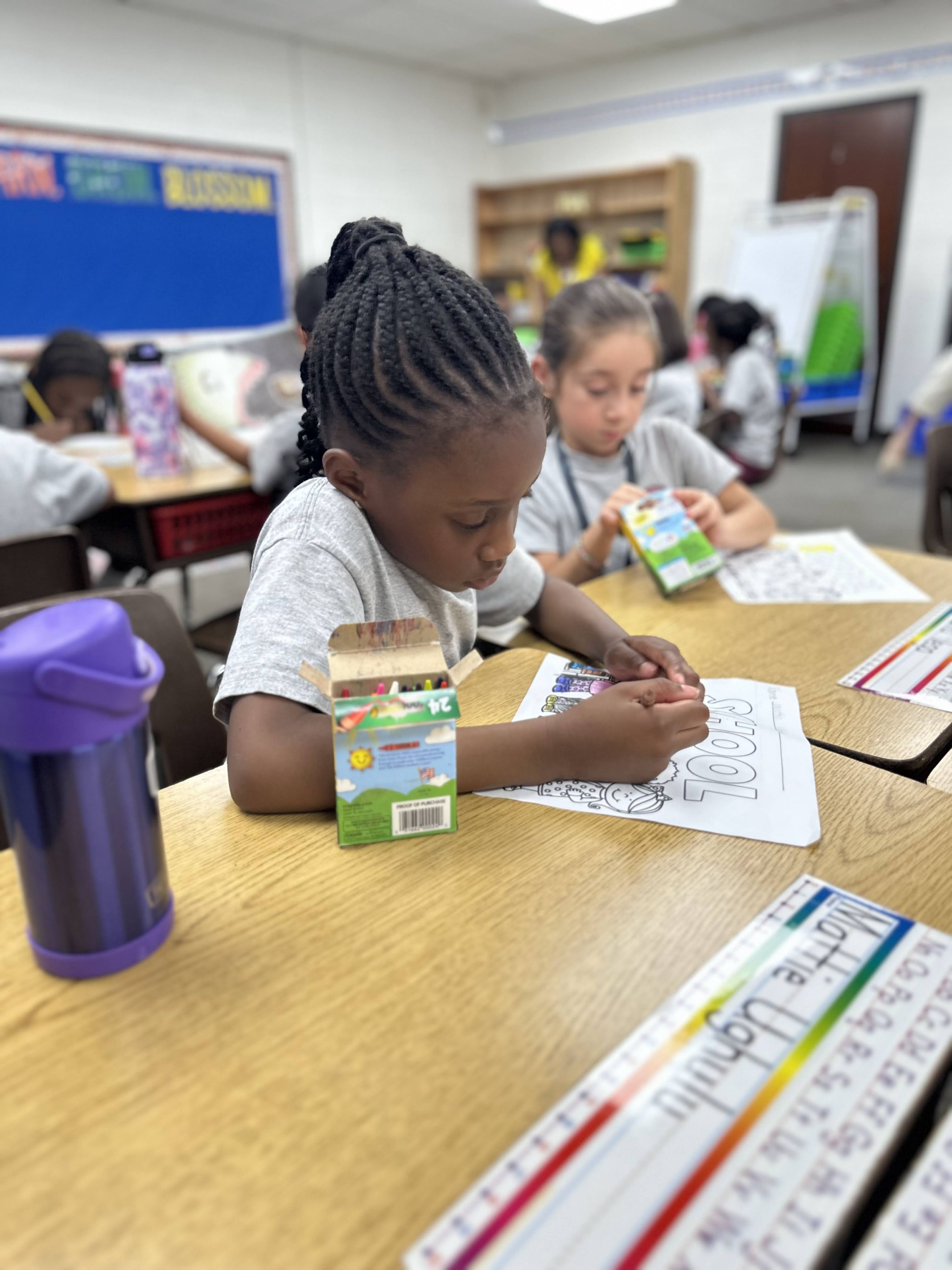
Religion
First-grade students become more familiar with their Catholic faith by learning to recite Catholic prayers, attending Mass, doing stations of the cross-project, and adoration as well as praying the Rosary. The curriculum focuses on recognizing God as our Creator, understanding the Holy Family, and learning Bible stories that help to develop a clear understanding go right and wrong and what it means to be of service to one another.
Language Arts & Reading
The reading program integrates both a phonetic and language experience approach to building students decoding, fluency, and comprehension skills. The Orton-Gillingham approach is used to continue to develop and refine the students’ phonics skills. While immersion in literature and informational text is used to build and stretch their comprehension skills. Students learn to independently identify and provide evidence from the text in answering questions about the central idea, plot, setting, and character development.
Language Arts are taught through writing often and for a variety of different purposes. Not only do students learn to write legibly and use correct spelling patterns, but they also learn to use proper grammar, syntax, and mechanics. Children are exposed to parts of speech, sentence structure, and sentence types. Students practice reading and editing both their own papers as well as their peers. They begin to put sentences together into paragraphs and provide information about subjects that interest them, in addition, to building on their ability to present information as well as listen and use the information they have heard.
Mathematics
The Math program lays the foundation for their future learning in math. They engage in activities to promote number sense; understand a variety of ways to represent a given number and its relationship to other numbers; demonstrate the relationship between operations and estimates; addition and subtraction without regrouping; place value. They develop a foundational knowledge of fractions as a part of the same whole; compare and order patterns; demonstrate fundamental concepts of measurement and geometry; and, identify, analyze, and describe attributes of shapes and recognize symmetry.
Science
The integration of Science, Technology, Religion, Engineering, Art, and Mathematics (STREAM) in studying life, physical, and earth science is the basis for the Science curriculum. In the first grade, we provide a wide array of foundational topics in which students can draw as they move through subsequent grades. We observe the sun, moon, and stars to describe their effect on the life cycles of a variety of living organisms. We study the habitats of a variety of organisms and look closely at the human body; its organs, muscles and protective structures (bone and skin). Students learn to understand the needs, life cycles and effects of the environment on plants and animals. We also study physical science through the study of matter and its’ responses to force, motion, sound, and light. And we begin to develop an understanding of inquiry and the scientific method.
Social Studies
Students learn about citizenship in Social Studies. Understanding their role as individuals in their community, state, nation, and the world, as well as their Christian obligation, to care for their fellow citizens; the poor, hungry and aging is a large part of this curriculum. Students learn about the difference between wants and needs; the importance of rules in the family, school, and community; and begin to understand why it is important to remain aware of current events. Students also learn the about our nation’s capital, flag, president; and learn map skills.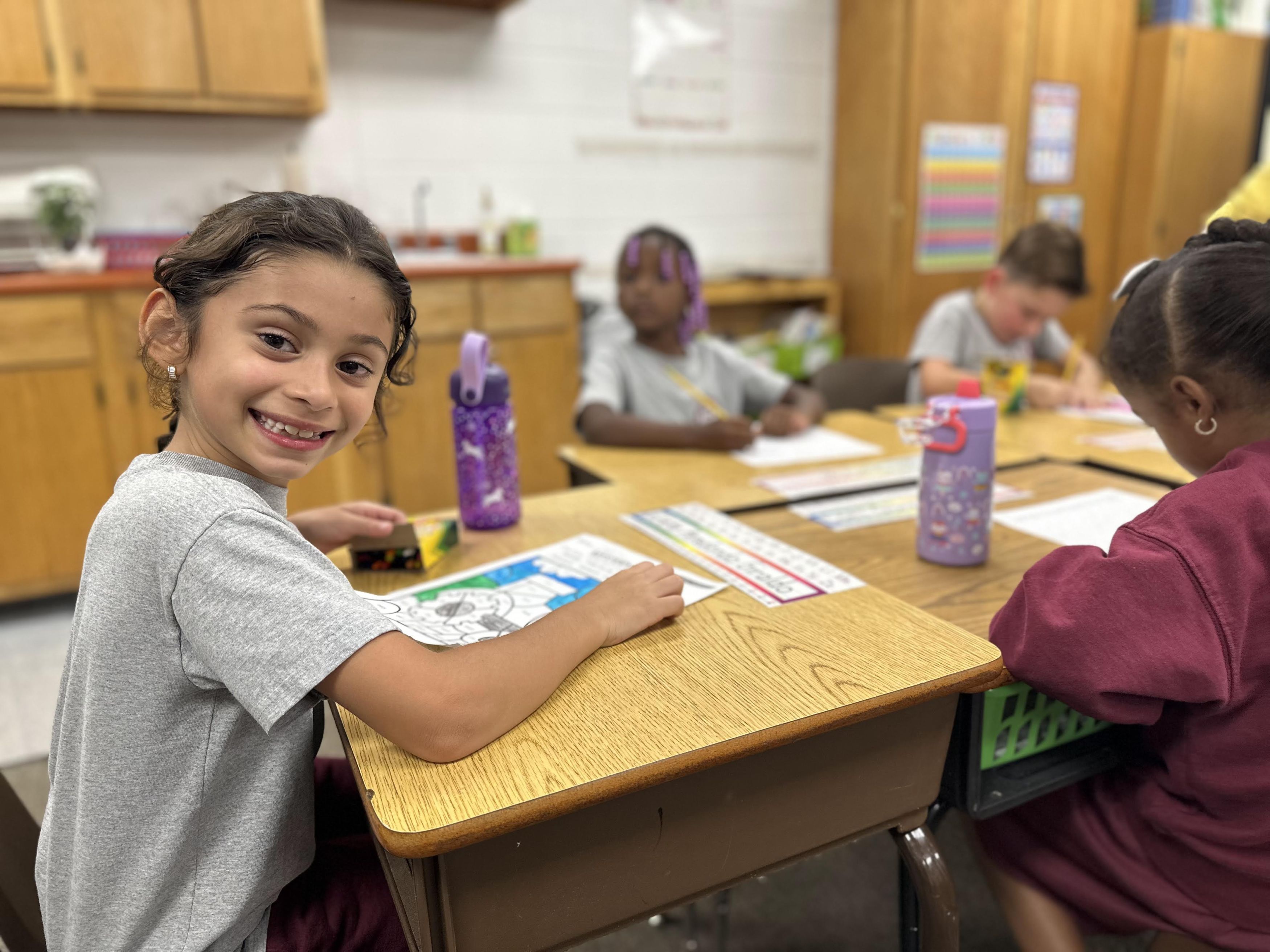
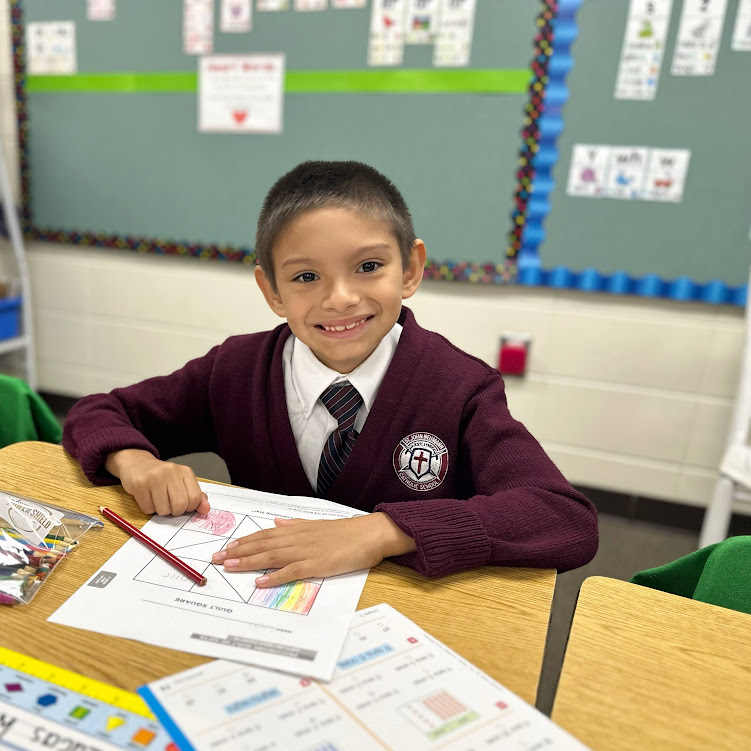 Religion
Religion
A central theme of our Grade 2 year is that the Catholic Church celebrates the faith through the sacraments. Through Baptism, we became members of God’s family. This year is highlighted by the gift of forgiveness our children receive with their First Reconciliation. We are further united with Christ as they receive their First Eucharist. Through the year we focus on the Holy Spirit helping us pray and make good decisions, as we remember that God loves us even when we hurt others. Children finish the year knowing that they are truly receiving the body and blood of Jesus in the Eucharist.
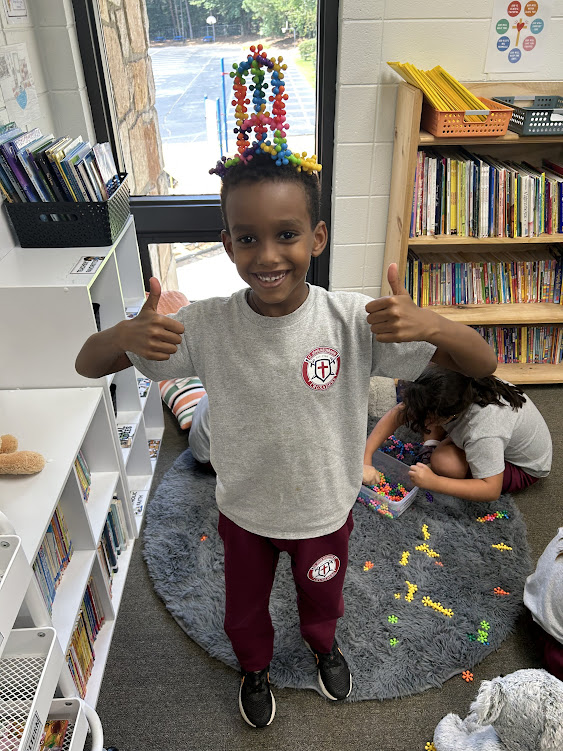
The focus in Grade 2 is on increasing reading fluency, vocabulary, and comprehension. The students learn to distinguish cause and effect relationships. Through the year they will respond to literal, inferential, and evaluative questions about literature. In addition to daily writing prompts, students, participate in a Writing Lab once a week where they apply phonetic strategies to spell words, and apply rules of punctuation and grammar. Using inflection when speaking and reading is emphasized. Listening and recalling sequences of events and details occurs regularly.
Mathematics
Solving multi-step real world problems is at the core of Grade 2 Math. Students will be able to skip count to 1000 by 5’s, 10s, and 100’s; read and write numbers to the 10,000 place; add and subtract within 1,000, applying “carrying” and “borrowing” strategies, calculate elapsed time, count back money change from $10.00; and work with geometry and measurement.
Science
Students use hands on learning with Earth and Space Science, Life Science, and Physical Science. Once a week they have Science Enrichment with the Middle School Science teacher exploring subjects in depth in the Science lab.
Social Studies
Our Christian obligation to care for the poor, hungry, and aging is woven through our studies of history and famous historical individuals. We also study geography and government.
Technology
Students have access to two separate computer labs. Technology is integrated into all content area.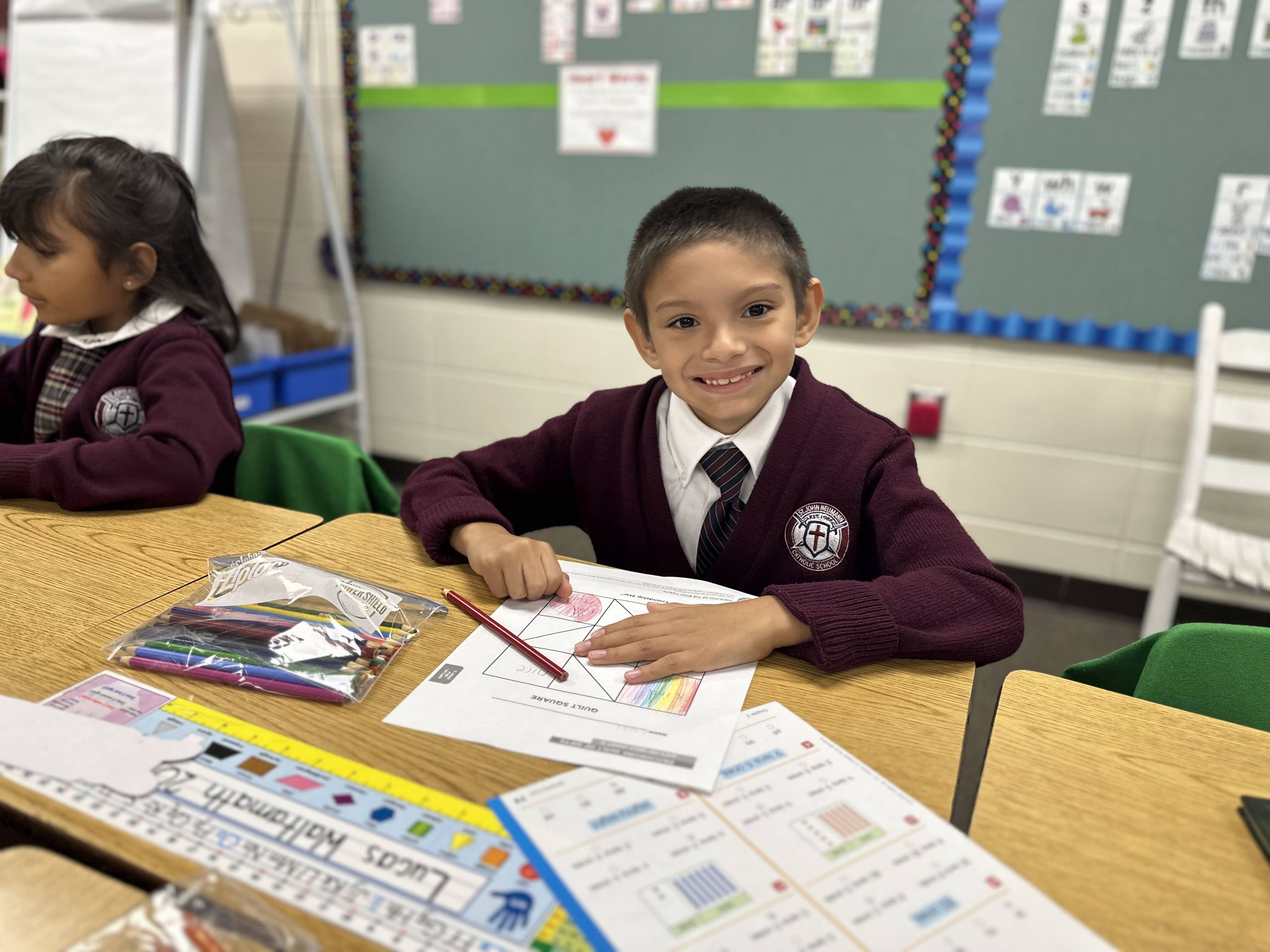 Homework
Homework
Second-grade students are expected to read 20 minutes every night. In addition, they have about 15-20 minutes of written homework to reinforce skills.
Assessment
A progress report and report card are issued four times during the year at the middle and end of each quarter respectively to inform parents of their child’s progress. In addition, weekly grades are available on the RenWeb Parents Portal.
Religion
Third graders grow closer to our Lord and understand his deep love for us as they locate and read scripture from the Bible. Students begin to understand more about Jesus and our Blessed Mother through praying the mysteries of the rosary. The seven sacraments, saints, the liturgical year and the Ten Commandments are some of the highlights of the curriculum. St. Kateri Tekakwitha (Lily of the Mohawks) is our classroom patron saint.
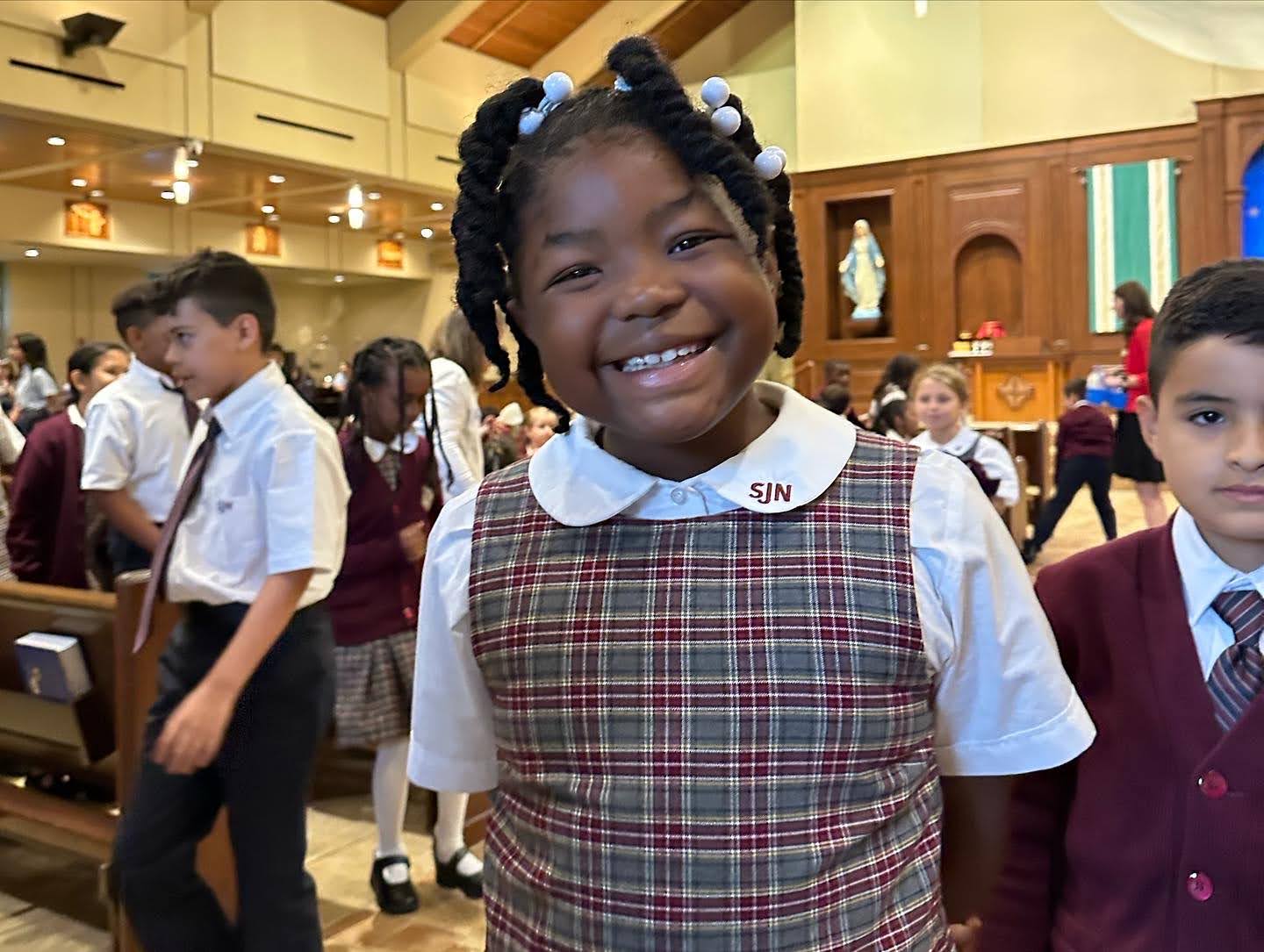
Language Arts & Reading
Third graders are now reading to learn. The students read from the Treasures reading series where skills are practiced to help students develop a strong comprehension. Students enhance their writing skills as they utilize the rules of grammar to write opinion, narrative and persuasive pieces. Orton-Gillingham principles are used when teaching students how to decode, spell and understand multisyllabic words. Vocabulary skills are strengthened as students learn words based on their root, prefix or suffix meaning. The students create interactive vocabulary notebooks.
Mathematics
Computation skills are extremely important to our third-grade curriculum. Students must master all four operations in third grade (addition, subtraction, multiplication, and division). The mastery of these computation skills helps students to solve problems mentally. Concepts skills include place value to the millions, measurement, fractions, geometry, probability, elapsed time, counting money and making change. Students receive a Computation grade and a Concept grade.
Science
Students engage in many hands-on experiences as they study the “Next Generation Science” standards in the following units: the scientific method, science tools, weather/climate, fossils, force and motion, energy, simple machines, vertebrates/invertebrates, the solar system, adaptations, food chains/webs, and magnets. The students love going to the science lab on a regular basis to conduct experiments and to work collaboratively on S.T.R.E.A.M. activities.
Social Studies
The study of the United States is the main focus of the third-grade curriculum. Students explore each region of the United States learning about the Native Americans who lived in the region, the productive resources of each region and the historical places and buildings. Students must be able to locate each state on a map and identify its’ capital. Students also study map skills, government, geography and economic principles.
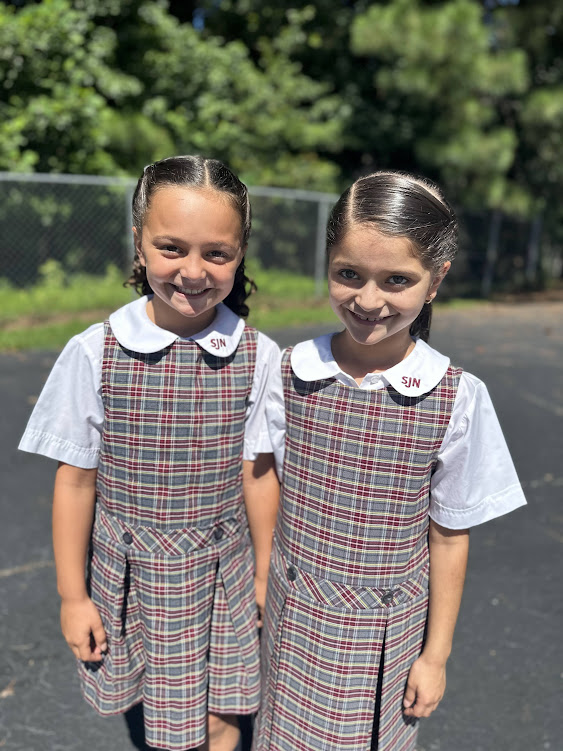 Technology
Technology
Students visit the computer lab at least once a week to practice skills in all content areas.
Religion
Christ is at the center of everything we do in class and our faith is woven in all subjects. We have a daily religion class where we focus on the Bible’s message of God’s love for us, the Ten Commandments and the Beatitudes. We use the New Evangelization Edition of the Christ Our Life book series authored by the Sisters of Notre Dame and published by Loyola Press – a Jesuit Ministry.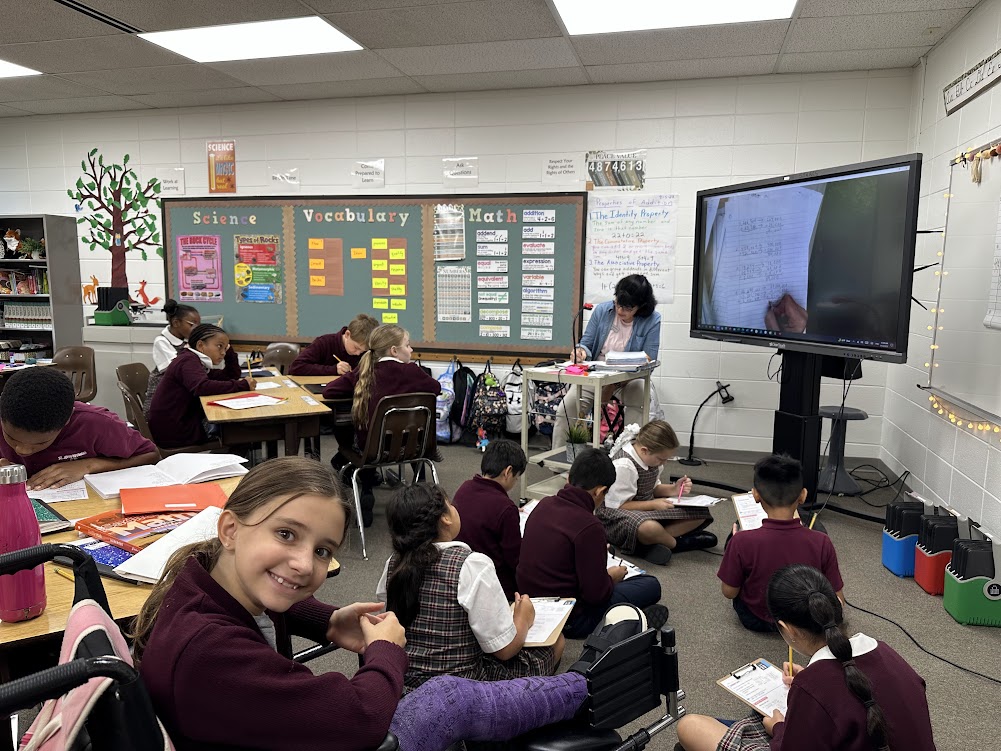
Language Arts & Reading
Our focus is for students to learn and apply strategies to be a good reader. Our goal is to increase reading stamina, vocabulary, comprehension, fluency and prosody. We use the inclusive Treasures reading series and its accompanying grammar, spelling and writing components by MacMillan/McGraw-Hill. This spiraling process reinforces each unit’s concepts and skills.
We believe better readers make better writers; therefore, our Writer’s Workshop ties into our weekly reading units. Fourth graders will have the opportunity and direction to develop their narrative, persuasive, expository, and descriptive writing in our Writer’s Workshop.
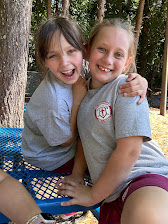 Mathematics
Mathematics
In fourth grade, we build on previously learned concepts and take them to new levels. Our students will encounter new concepts and strategies this year, including adding, subtracting, and multiplying fractions; long division; data collection and analysis; plotting line graphs, and other spiraling concepts. Learning games and technology-related activities make learning math fun!
Science
From our solar system to waves and energy…From the human body to rock formation…Fourth Grade goes “to infinity and beyond!” This year we explore and experiment with many different topics and items of interest. We work in teams to demonstrate and experiment. We learn by discovering, and using the scientific method. Our students love to develop hypotheses and find ways to prove them. Future scientists and engineers are at work at SJN!
Social Studies
Fourth graders will develop and apply map skills and map terms. Fourth grade covers Early U.S. history including exploration of the New World, The American Revolution, The War of 1812, and Western Expansion. They will also identify the Branches of Government and its checks and balances.
Technology
Technology increases our use of outside resources approved by the Archdiocese. We utilize the computer lab to improve student engagement and increase academic performance.
Religion
In fifth-grade Religion class, we continue to learn about our faith and strengthen our relationship with the Lord. Our focus is on a study of the Mass and the Sacraments. Each month the students memorize a prayer. These prayers help the students to more fully participate in the Mass and assist in the continued development of a rich prayer life emphasizing regular conversation with God.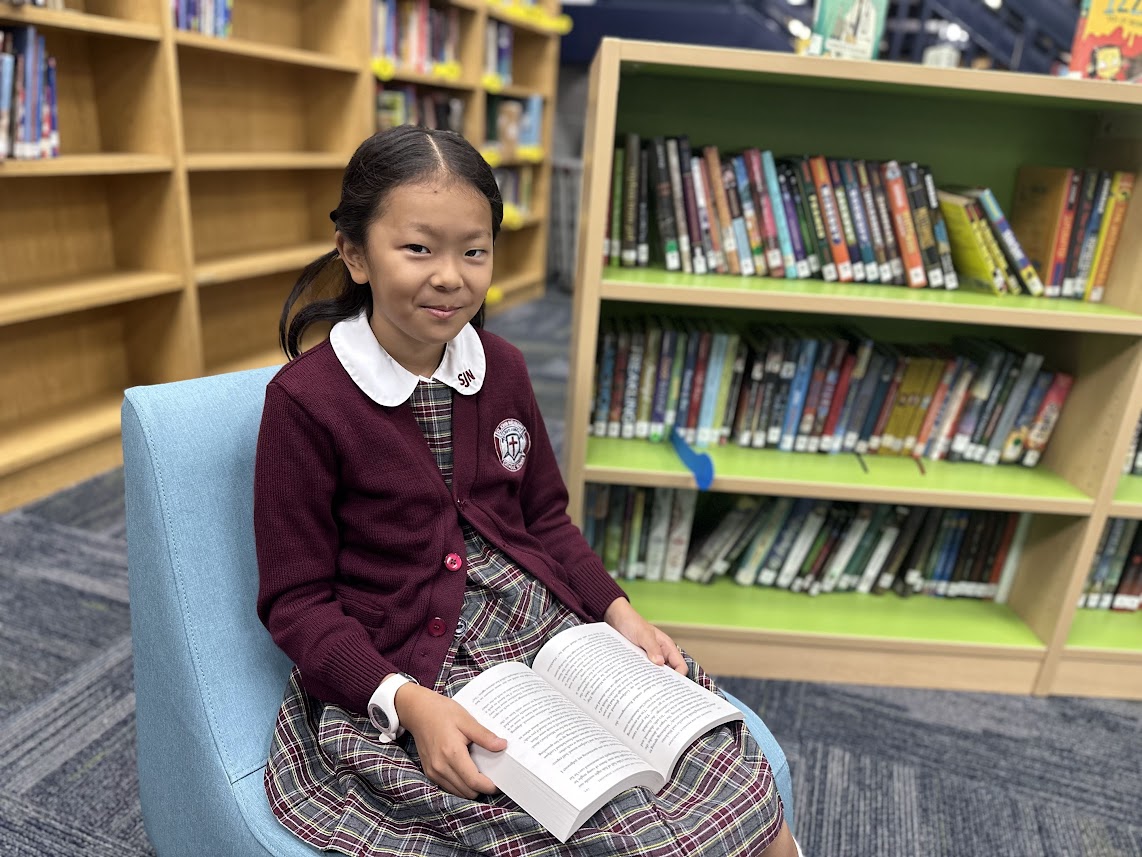
Language Arts & Reading
In Reading, we explore different genres and themes in literature. We use the Voyages text by MacGraw Hill. We explore different reading strategies through read-aloud grade-level novels. Students learn to look at stories with both a critical view from a writing standpoint and with an eye for choosing grade and level-appropriate novels for enjoyment. We do both traditional book reports and engage in one-to-one reading conferences with the teacher.
Reading and Writing go hand in hand, so we will often overlap our writing practice with our novel studies. Using the Voyages text by Loyola Press, we start to foster a deeper understanding of parts of speech and grammar terms in isolation. We apply this knowledge directly to our Writer’s Workshop, which uses the 6 Traits of Effective Writing, plus the Six Steps to Publishing.
Mathematics
In Math, our fifth–graders are exposed to both classical and contemporary instruction. We focus on computation as well as concepts. The focus on computation helps our students complete the higher math applications more smoothly. Through the year we have a strong focus on the concepts of fractions and decimals. We also review our math skills with daily practice to ensure the students master these important concepts
Science
We follow the Next Generation Science Standards to adequately prepare our students for middle school. We work on physical science, Earth/space science, life science, and engineering. The students complete several projects throughout the year to help reinforce the units of study. We also have daily practice books that help our students review topics previously covered to ensure that these key concepts are in the student’s long-term memory.
Social Studies
In Social Studies, fifth grade covers United States history from the early 1800’s up to, but not including, World War I. Students will practice note-taking, outlining, and other study and test-taking skills, as Social Studies, provides the perfect platform for these skills.
Technology
Our fifth graders are 1:1 with technology and each student has their own Google Chromebook. Throughout each school week, they use it to conduct research, practice note-taking skills and create presentations that allow them to combine their writing and oral presentation skills with a creative technology component. We reinforce digital citizenship through student collaboration on projects, and they use Google Classroom to allow for effective communication on mini-projects and class assignments.
Homework
In fifth grade, we have nightly homework to both preview new concepts and to reinforce those learned in the classroom. Daily activities in Simple Solutions is required for both mathematics and science. In order to create a long-term habit of review and reflection, students are encouraged to practice studying new material learned on a daily basis.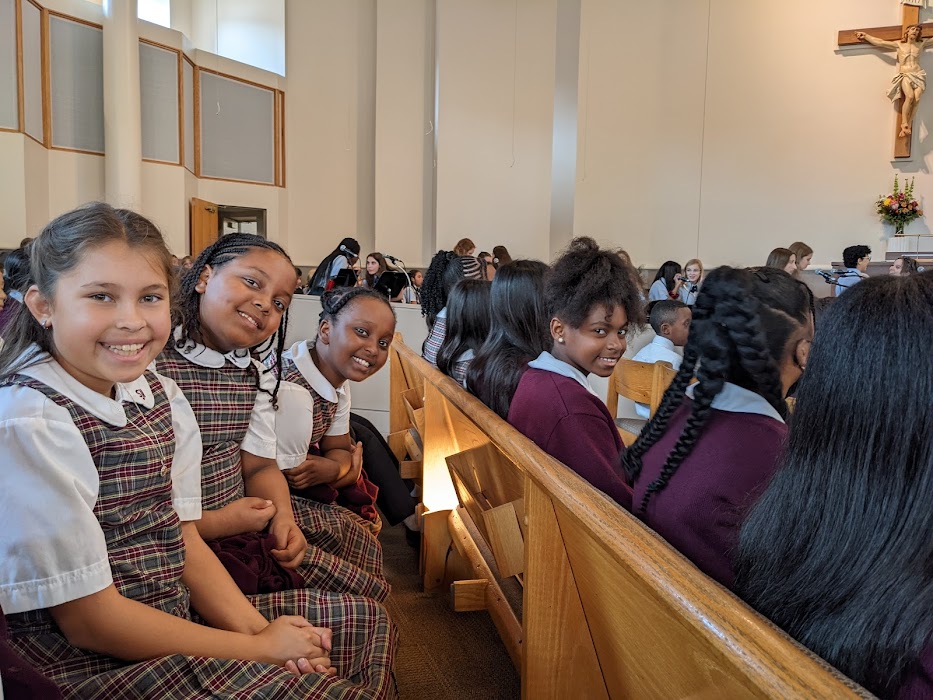
A progress report and report card are issued four times during the year at the middle and end of each quarter respectively to inform parents of their child’s progress. In addition, weekly grades are available on the RenWeb Parents Portal.
St. John Neumann Regional Catholic School maintains a rigorous middle school curriculum that meets and exceeds state and national social studies standards.
Religion
Middle school religion is a three-year journey to further help students develop a deep relationship with the Father, Son, and Holy Spirit through the exploration and study of1) sacred scripture, 2) Church doctrine and 3) Catholic dogma. Students become strong advocates for their spiritual beliefs and develop a strong moral conscience. Through stewardship, field trips, and retreats, middle school students take their beliefs and teachings and apply them to social injustices, diverse cultural differences, and those in troubled positions. Students are expected to respond to the Gospel call by engaging in community service through their time, talent, and treasure.
Middle school religion follows a curriculum that is developed by the Archdiocese of Atlanta. Students graduating from St. John Neumann leave with a strong sense of self because of their understanding that the human need for God is based on divine revelation and faith. SJN graduates are ready to take their place in the high school setting having a basic understanding of the Church and knowledge of how to participate in Catholic traditions and prayer.
Language Arts and Literature
Language Arts encompasses the areas of literature, reading, speaking skills, grammar, vocabulary development, and spelling. Middle school students continue to develop an appreciation of written and spoken language. Writing skills are emphasized throughout the curriculum, especially helping students to respond to what they read, and to develop their own creativity.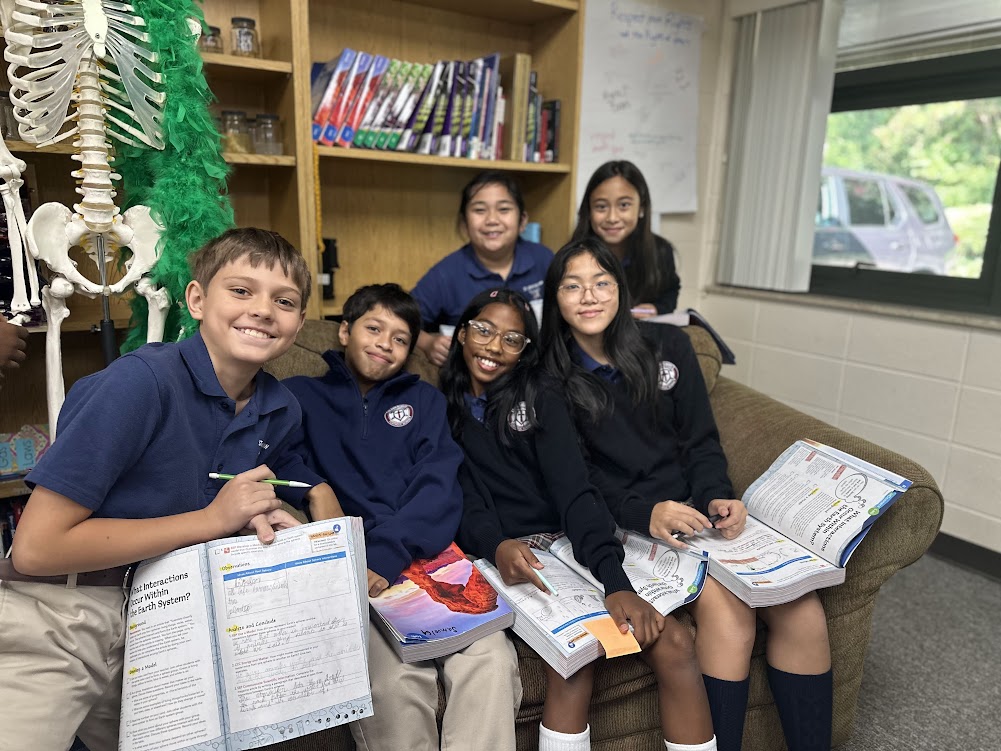
The Language Arts curriculum focuses on two interrelated areas of study: Literature/Writing and English Grammar/Vocabulary. In Literature, students acquire and expand reading skills through exposure to a variety of informational and fictional texts. By reading a variety of genres, students learn to recognize the elements of literature and literary devices. Class novels are selected for literary merit, cross-curricular connections, and the opportunity to introduce the Principles of Catholic Social Teaching. Each grade level reads at least three novels in class and uses a program where students choose their own reading materials to explore different genres through conferences, reviews, blogs, etc. with their teacher and other students. In writing, students create and develop formal and informal pieces of writing. In Vocabulary, students continue to expand both spoken and written vocabulary and increase their knowledge of correct spelling. In English grammar, students acquire a background in the conventions, usage, and mechanics of oral and written language. All middle school grades participate in the Archdiocesan Spelling Bee and Civic Oration contest. In addition,` middle school attends live performances both in school and as field trips.
Math
SJN works to meet all students and raise them to new heights with a rigorous middle school mathematics curriculum that is designed to meet and exceed state and national standards. SJN works to incorporate problem-solving skills, collaboration, and thoughtful explanations into the mathematics classroom to strengthen conceptual and procedural learning.
SJN utilizes many digital and tangible resources to aid in student learning and reasoning skills. Problems are presented in unique ways to encourage students to think beyond the classroom setting and seek to apply these skills to their lives. Real-world applications and explanations are used to help students reflect on how real life can be modeled through mathematics.
6th Grade: The sixth-grade mathematics curriculum is divided into several units to help build upon prior knowledge and prepare the students for seventh-grade and pre-algebra. These topics include: Number System Fluency
Number System Fluency
Integers and Rational Numbers
Rates, Ratios, and Proportions
Expressions and Order of Operations
Equations and Inequalities
Area and Volume
Statistics
7th Grade: In seventh grade, students have two options for coursework depending on the student’s readiness and performance in the classroom. Seventh-grade students on grade level will further develop their mathematical prowess while preparing to take prealgebra in the eighth grade. Their topics of study include:
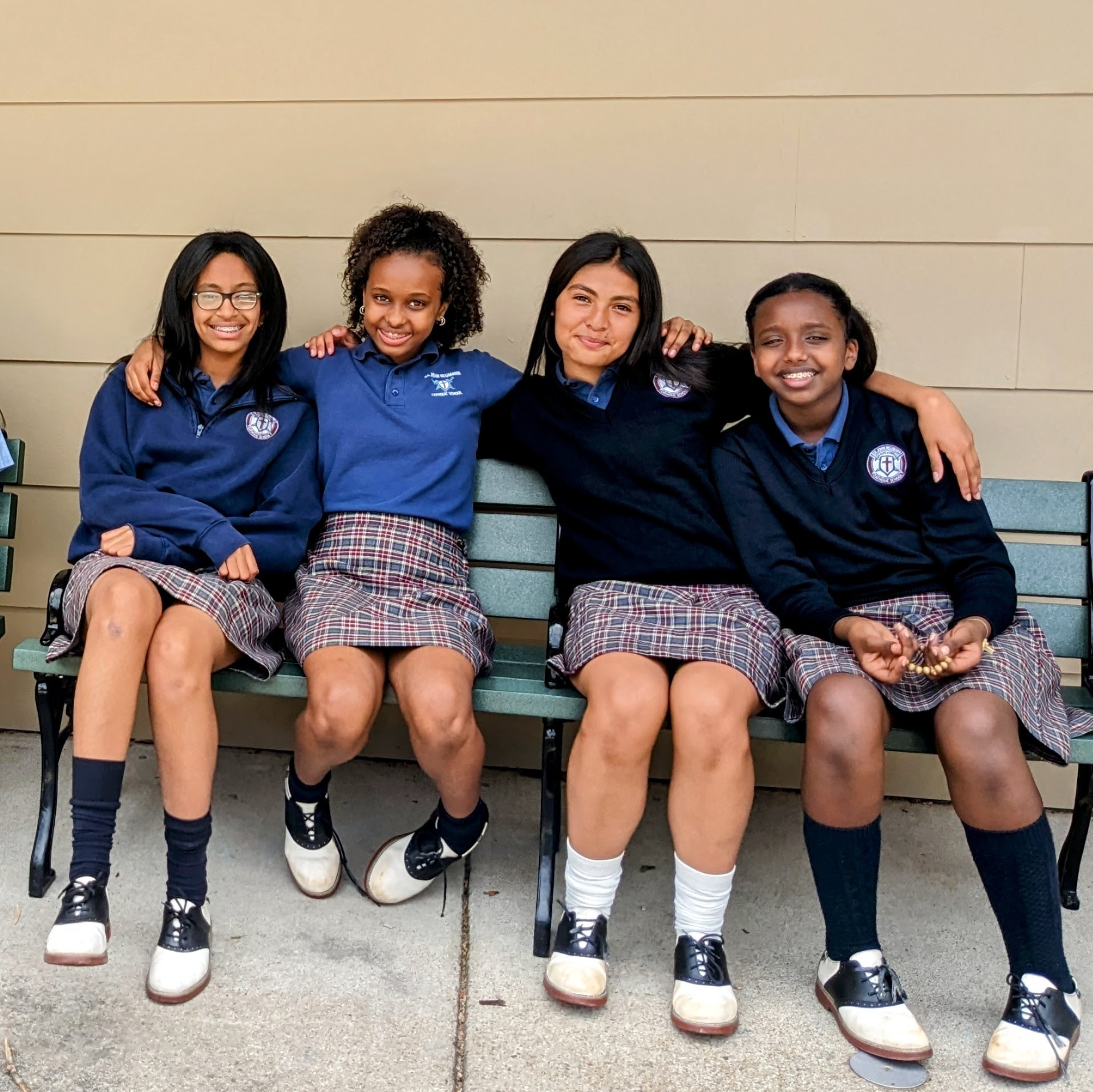 Expressions and Equations
Expressions and Equations
Inequalities
Rates, Ratios, and Proportions
Geometry
Inferences
Probability
Alternatively, students could begin pre-algebra in their seventh-grade year if they display the mathematical aptitude and discipline necessary. Topics for this course include:
Equations
Transformations and Geometry
Exponents and Scientific Notation
Geometric Applications of Exponents
Functions
Linear Functions
Statistics, Probability, and Inferences
Solving Systems of Equations
8th Grade: Students in the eighth grade also have two different courses available to them. The primary eighth-grade course is pre-algebra. In this course, students with further their mathematical understanding and build the foundations necessary for their high school math courses. Students will also begin to sample topics from algebra during the course. Topics for this course include:
Equations
Transformations and Geometry
Exponents and Scientific Notation
Geometric Applications of Exponents
Functions
Linear Functions
Statistics, Probability, and Inferences
Solving Systems of Equations
Alternatively, students could begin algebra in their eighth-grade year if they display the mathematical aptitude and discipline necessary. Topics for this course include:
Review of Pre-Algebra
Relationships between Quantities and Expressions
Linear Equations and Inequalities
Exponential Functions
Compare and Contrast Functions
Statistics and Describing Data
All mathematics sequences are integrated with mathematical communication skills, problem-solving skills, applications of technology, and creating meaningful connections with the content.
Science
SJNRCS overlays its curriculum atop the aggressive Next Generation Science Standards–national standards endorsed by the National Science Teachers Association.
We couple classroom instruction with weekly labs and hands-on activities such that students integrate theory with real-world applications. The school’s one-to-one student-device program allows students to participate in virtual labs and explores interactive simulations.
Students receive traditional science books, as well as access to the online textbooks to meet the needs of different learning styles.
6th Grade: The Earth & Space Science curriculum has students exploring science through three sequences: 1) Earth’s Place in the Universe, 2) Earth’s Systems, and 3) Earth and Human Activities.
7th Grade: The Life Science curriculum has students exploring science through four sequences: 1) Molecules to Organisms, 2) Interactions, Energy, and Relationships in Ecosystems, 3) Heredity, and 4) Biological Evolution.
8th Grade: The Physical Science curriculum has students exploring chemistry and physics through four sequences: 1) Matter and Its Interactions, 2) Motion and Stability, 3) Energy, and 4) Waves and Their Applications in Technology Information Transfer. This year is packed with many advanced science labs–assisting in the transition to high school.
All science sequences are equipped with engineering design performance expectations.
Social Studies
Our goal is to create well-rounded and knowledgeable global citizens while integrating our Catholic faith and values. Students have the opportunity to learn about other cultures through the curriculum and through one another. Students also have the opportunity to participate, in conjunction with math class, in a statewide competition called the Stock Market Game which teaches students global awareness and personal finance.
Students receive traditional Social Studies books, as well as access to the online textbooks for a choice of learning style.
6th grade: The curriculum focuses on Europe, Latin America, and Canada through history, civics and government, Geography, and Economics systems.
7th grade: The curriculum focuses on the history of the United States from Early Americans to 1865 (Reconstruction), U.S. civics and government, U.S. Geography, and U.S. Economics.
8th grade: The curriculum focuses on the history of the United States from 1865 (Reconstruction) to the present day, U.S. and Georgia civics and government, Georgia Geography, and Georgia Economics.
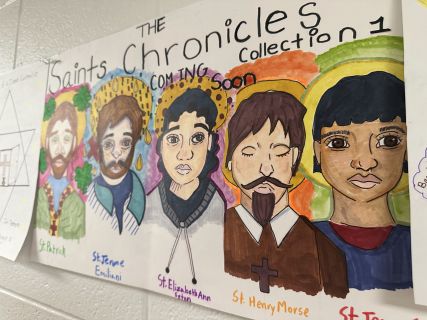 Technology
Technology
The school’s one-to-one student-device program is incredibly beneficial for monitoring student growth, creating academic presentations, and demonstrating mastery in unique and meaningful ways. It allows students to participate in collaborative projects, with their peers, to solidify learning. Students are able to have discussions with one another and respond to current events using various technological tools. A major tool we use is Google Classroom. This platform allows communication for the teacher to students and student to student to ensure correct learning and understanding. We also use Seesaw which allows parents to see what their child is learning through student-created products.